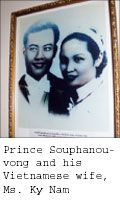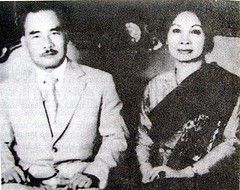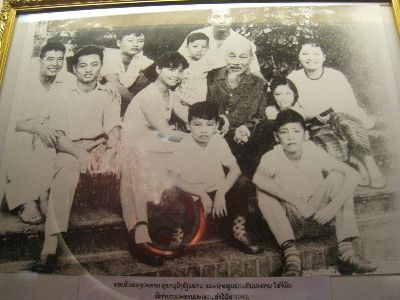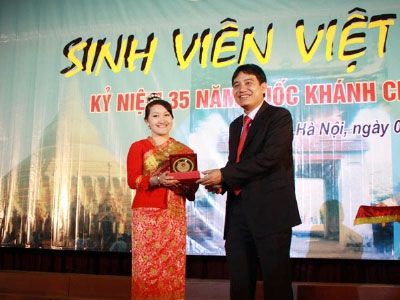Vietnam & Laos from the Past until Present
The N. Vietnamese Army in Laos (1951-73(U) SECRET
unclassified - Defense Technical Information Center
www.dtic.mil/dtic/tr/fulltext/u2/c011408.pdf
ABSTRACT
Laos was designed to be a buffer state between Thailand and North Vietnam. The North Vietnamese, however, were determined to influence if not actually control events in the country. In response, the United States and Thailand backed various right-wing elements and selected tribal groups (principally the Mao) to frustrate North Vietnamese designs and to establish Western centers of influence where feasible. Though initially constrained by weather and poor roads, the North Vietnamese Army (NVA) began a pattern of ebb and flow, expanding military activity in Laos in response to political setbacks in Vientiane, pulling back when their clients, the Pathet Lao, did well. Gradually, the NVA policy evolved from one of bolstering the position of their buffer allies to one of maintaining total domination over large areas of Laos to protect the Ho Chi Minh Trail. Thus, from 1965 onward, the North Vietnamese viewed Laos not only as a buffer but as the corridor through which their, lifeline to the south must pass. Eventually, laos became one more battlefield in the Indochina War as the NVA launched multi-division operations while the United States flew. up to 700 sorties per day in Laos, and Thai infantry and artillery battalions assisted the CIA-supported Mao Irregulars and the Royal Lao Army.
... (U)Chief among these political leaders, if for no other reason than sheer durability, was Prince Souvanna Phouma. A French-educated liberal, he sought to establish unity between the right-wing elenents in Vientiane and the Pathet Lao, the Marxist popular movement of North
Vietnamese sponsorship. Since his brother, Prince Souphanavong, was a member of the Pathet Lao hierarchy, Souvanna Phouma believed that he could use family ties to induce the Pathet Lao away from North Vietnamese control and into a neutralist coalition in the face of foreign intervention, Souvanna Phouma intended to rely on his ability to manipulate the foreign diplomatic community to gain international recognition and support. ...
"Laos must be kept out of the hands of the Imperialist at all cost; if not, Vietnam can never stay independent. Hostile forces cannot be tolerated the length of the borders of Tonkin." - Ho Chi Minh, September 1945.3
`````````````````````````````````````````````````````````````
See photos of Souphanavong and his Vietnamese wife, Ms. Nhuyen Thi Ky Nam
See Children of Souphanavong & Ms Ky Nam posed with Ho Chi Minh.
http://english.vietnamnet.vn/en/spec...riendship.html
Click the link below to see Souphanavong's grand daughter, Ms. Nhotkhammani or Nguyen Thi Kim Nga. See Kim Nga's photo below.
www.laohomelao.activeboard.com/t49552145/lao-princess-and-the-love-for-vietnam/
Nhotkhammani Souphanouvong, or Nguyen Thi Kim Nga in Vietnamese, aged 25, from Laos, is always called with lovely name “Lao Princess” by her Vietnamese friends. However, she refused the “Title” and said that she was a normal Vietnamese-Laotian.
Having meals at a popular restaurant of street vendors, sleeping in hostel, driving motorbike as Vietnamese and actively taking part in voluntary activities as well as with friendly and open-hearted character, few people knew that she is a grandchild of Prince Souphanouvong, the late Lao President, who had a historic marriage with Nguyen Thi Ky Nam, a Vietnamese girl in Nha Trang City.
Unforgettable memories of first days in Vietnam
With the hope to return to Vietnam, where, more than 70 years ago, her grandmother left to live in Laos with her grandfather, to learn more about Vietnam as well as to make an effort to promote the long-lasting relations of Vietnam and Laos in the future, Nhotkhammani decided to leave her homeland to study in Vietnam at the age of 16.
She confided that it has been 10 years since she came to Vietnam, however, memories of the first days at the Friendship School 80 in Son Tay town, Hanoi, Vietnam, are always in her mind and will be unforgettable in her life.
Born in the royal family, she was carefully brought up by her grandparents and mother. Therefore, her first days to start an independent life in Vietnam were very difficult.
She remembered that during these days at the school, her mother usually called her to give encouragements to help her overcome difficulties. Thanks to these encouragements and her utmost efforts, Nhotkhammani gained a lot of achievements. In 2003, she became a student at the Diplomatic Academy, received her Masters Degree in 2009 and will receive Ph.D. Degree in the subject of Vietnam-Laos relations.
Because of living on her own for years, Nhotkhammani believed that she looks older and more mature than Vietnamese and Laos friends of her age.
Apart from having good academic records, Nhotkhammani loves holding and taking part in extracurricular activities, artistic and sports exchanges as well as programs to help Vietnamese and Lao students have an opportunity to share experiences.
Besides, she has had active exchanges with foreign students to learn more about cultures of countries around the world as well as to introduce Lao culture to international friends. She has visited many places in Vietnam to meet Vietnamese people as well as to learn more about their daily life. In free time, she has usually been cycling and enjoying Vietnamese foods, such as pho and bun dau mam tom (rice vermicelli and soya cake with shrimp sauce) with Vietnamese friends.
In addition, Nhotkhammani is also well-known by her singing talent and has been an active participant in Vietnam-Laos artistic programs. In 2006, Nhotkhammani received the title of Miss Friendship of the Diplomatic Academy.
She said that living in a foreign country without family members and old friends helped her learn more about the importance of friendship and skill and spirit to overcome all difficulties.
For her contributions, Nhotkhammani was appointed as Deputy-Chairwoman of the Lao Students’ Association in Hanoi and Deputy-Secretary of the youth union of overseas Lao students in Vietnam. Nhotkhammani also received many certificates of merit and was admitted as a member of Lao People’s Revolutionary Party.
Family is a motive
Nhotkhammani confided that her family is her pride and a motive to help her overcome all difficulties.
Nhotkhammani said that when her grandfather was alive, he usually made cacao milk for her whenever she came to visit him. He told stories of the Vietnamese history as well as his love story with Vietnamese girl. He said that he, an engineer at that time, met Vietnamese girl, Nguyen Thi Ky Nam as she was on vacation in her hometown in Nha Trang City. After marriage, he and Mrs. Ky Nam returned to Laos to build a revolution base. After returning to Laos, he gave his wife a Lao name, Viengkham Souphanouvong (Golden Citadel).
Nhotkhammani’s grandfather also gave her mother a Vietnamese name, Nguyen Thi Kieu Nga. Her grandparents and mother also told her about the life and career of the late President Ho Chi Minh, meetings between the Souphanouvong family and the late President Ho Chi Minh as well as the love of the Souphanouvong family for the late President.
Nhotkhammani confided that her mother, Mrs. Nhotkeomani Souphanouvong, has a strong effect on her life. Although she was busy, she always gave encouragements to help Nhotkhammani overcome difficulties. Whenever her mother visited Vietnam, Nhotkhammani and Mrs. Nhotkeomani Souphanouvong had an opportunity to meet Mrs. Nhotkeomani Souphanouvong’s friends to learn more about Vietnam-Laos relations.
Nhotkhammani said that the decision to study at the Diplomatic Academy partly came from her mother. She was once a student of the Academy. When the U.S. bombed Hanoi in 1967, her mother participated in repairing roads for Vietnamese troops to shoot American helicopters. After that, she received the title of “Valiant Woman to kill American invaders”.
Nhotkhammani also expressed her hope that she could continue studying about Vietnam-Laos relations and work as a diplomat



